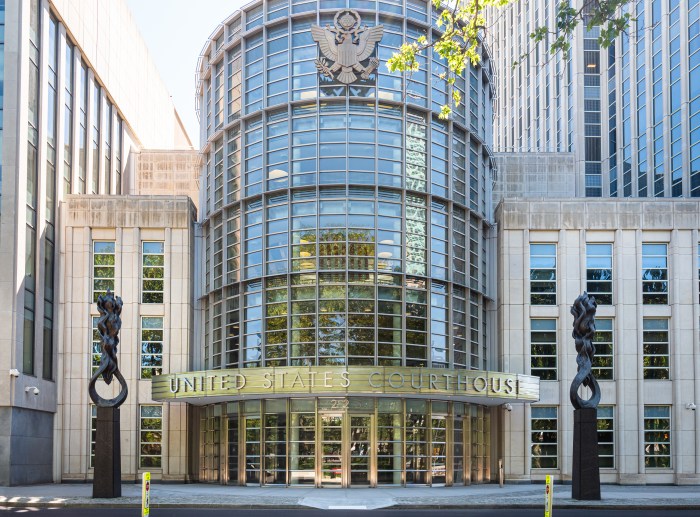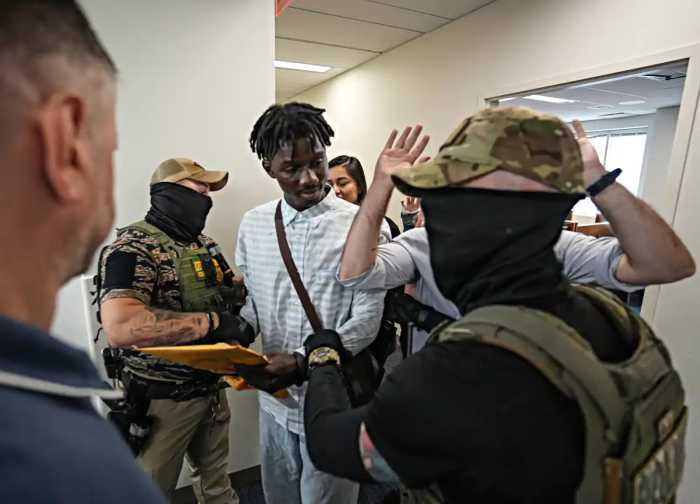Senate Majority Agrees to Bailout MTA with Payroll Tax
The Metropolitan Transit Authority (MTA) has a slogan – “Going Your Way.” But it should possibly be changed to “Going in Your Pocket.”
The Senate Democratic Majority has voted to support a bailout of the MTA with a payroll tax that will be applied to all businesses in the areas the MTA serves including Nassau and Suffolk Counties.
There are still expected to be a 10 percent fare increase with the bailout. However, the fare increase isn’t as drastic as the 27 percent increase that was proposed without the bailout. Instead of those who use the MTA services bearing the full brunt of the MTA’s financial troubles, the transportation agency will be subsidized by every Long Island employer with the possible exception of school districts.
The payroll tax that had been discussed includes a tax of 34 cents per $100 of payroll. When the payroll tax was first mentioned, school officials protested, saying that adding a payroll tax to school budgets would lead to increases in property taxes. State lawmakers in Albany are working out a way whereby school districts would be reimbursed for the cost of the payroll tax.
If school districts are somehow exempt, that doesn’t mean other employers will be.
And, according to the school districts they will have to pay the tax, although the state says school districts will be reimbursed. However, at Herricks they are not very optimistic and the amount they would have to pay would be roughly $150,000 to $175,000 and for New Hyde Park/Garden City Park the hike would be approximately $57,000 and for the Sewanhaka Central School District it would be $325,000. The village would not be exempt and the amount that the New Hyde Park Village and the Village of Williston Park would pay has not been calculated, as yet by the state.
Republican Assemblyman Tom McKevitt, reached in Albany, voted on the bailout plan voting to oppose it “100 percent.”
“This is just another way to make businesses and public entities on Long Island pay for the MTA’s inability to manage their own finances,” said McKevitt, whose district encompassed the Village of New Hyde Park. “In a year in which we have put in an addition $9 billion [in the state budget], which I voted against, to go even more taxes in a recession, I think, is just not responsible.
What may have been holding up the payroll tax is that all Democratic senators may not have been on board. Democratic Senator Craig Johnson initially opposed the payroll tax, but then supported it.
Johnson apparently did an about face on the payroll tax, which, he said, he opposed last month. On April 14, Johnson visited Anton Newspapers to discuss the state budget. He said at the time he didn’t trust the MTA. “It seems every time there’s a problem, the MTA cries poverty and says the only way we’re going to solve it is either Albany gives us money and bails us or we’re going to raise fares and cut service. I’m not doing an acronym bailout. There’s an AIG and, for me, it’s the MTA. I’m not going to bail out the MTA with people’s tax dollars. I don’t agree with a payroll tax.”
Spokesman for Senator Johnson, Rich Azzopardi, said before the vote on the bailout plan that Johnson would back the MTA bailout if there were language in the bill to provide a timely reimbursement for school districts. Azzopardi said Senator Johnson was initially opposed to the payroll tax because of the effect it would have on property taxpayers, but if school districts didn’t have to pay the tax, it wouldn’t affect property taxes.
To that end, at the last New Hyde Park/Garden City Park School Board meeting president Patricia Rudd announced that she, along with several other trustees, made the trip to Albany to personally meet with Senator Johnson and to ask him please not to vote for the bailout.
Rudd said at that meeting Senator Johnson assured them he would not be voting for the bill and not to worry.
Rudd said, “He lied to us. I can’t put it any other way, he just lied to us.”
Even if a payroll tax were not applied to school districts, it could still affect property taxes. Municipalities could find themselves having to raise property taxes in order to pay for the payroll tax. According to Nassau County Comptroller Howard Weitzman’s office, the county would have to pay the payroll tax and Nassau County has a substantial payroll.
In addition, all employers would be responsible for the tax, which could very well be passed on to employees. According to Senate Minority Leader Dean Skelos, the $1.5 billion payroll tax would devastate businesses, local governments, hospitals, not-for-profits and others within the 12-county MTA region. In addition, the Governor’s plan to reimburse school districts after they pay the payroll tax might never be realized since the governor would still have the authority to cut school aid to make up the difference, Skelos said.
Asked McKevitt about the money being reimbursed to school districts, “Is that money actually going to be there in next year’s budget?”
In addition to affecting municipalities, the payroll tax will affect businesses. According to the Retail Council of New York State, the cost of the payroll tax to the retain industry in Nassau County would be over $8.1 million (based on gross wages earned in 2007).
































